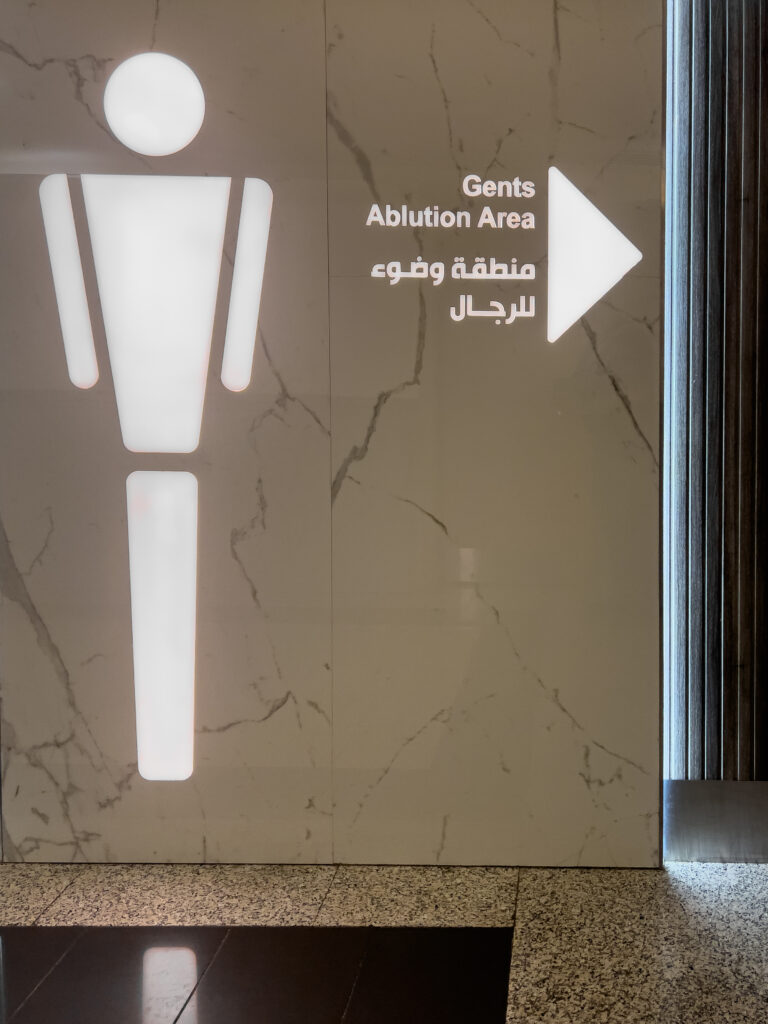In the rich tapestry of the English language, the label ‘Ablution Area’ presents itself as a peculiar choice for such a universal and unpretentious activity as attending to nature’s calls. One might reflect on whether its selection is a quirk of the whims of translation, perhaps aided by an overzealous interpreter with a thesaurus, or if it reflects the mores of a particularly formal culture, or indeed, it might simply be an exercise in discretion.

To speak of ablution is to invoke the ritual of cleansing oneself, a definition that aligns rather neatly with the more unimaginative purpose of the toilet. My interest has led me to muse about the diversity of terms we use to skirt around directly naming this shared human necessity. I found by listing these terms it becomes clear that they align with different aspects of this business, such as the equipment or the process, each reflecting a different arc of euphemisms, presumably to ease our collective discomfort:
- The Apparatus: Here, we find ‘The Head,’ ‘The John,’ ‘Crapper,’ ‘Throne,’ terms that cloud the nature of our porcelain conveniences.
- The Locale: Terms such as ‘Outhouse,’ ‘Washroom,’ ‘Bathroom,’ ‘Lavatory’ serve to obscure the act behind the veneer of place, a linguistic sleight of hand that distances the speaker from the act.
- The Separation by Gender: ‘Men’s,’ ‘Ladies’,’ serve not only as directions but as reminders of the societal bifurcation of gender, even in the most common of acts.
- The Experience: Phrases like ‘restroom,’ ‘to relieve oneself,’ cloak the act in euphemism, directing our attention to the feelings of the experience.
- The Act Itself: Here we encounter ‘defecate,’ ‘bio-break,’ ‘nature’s call,’ ‘taking care of business’ / ‘doing your business,’ terms that dance around the act with varying degrees of directness and decorum.
This list, though not exhaustive, serves to illustrate the web of sensibilities and cultural layers that inform our dialogue on this most common of functions.
Leave a Reply